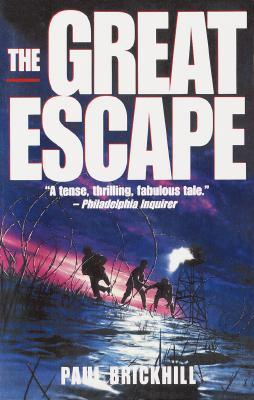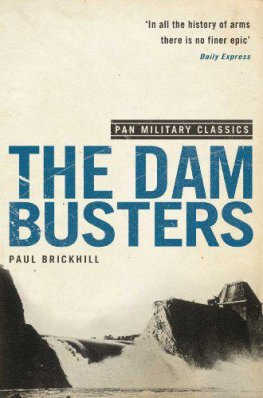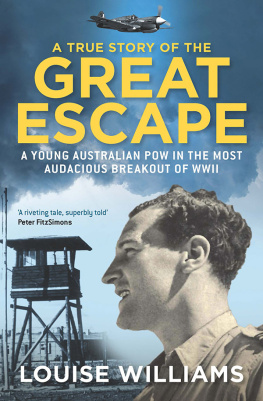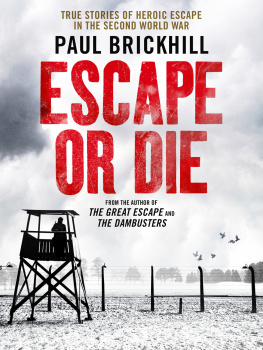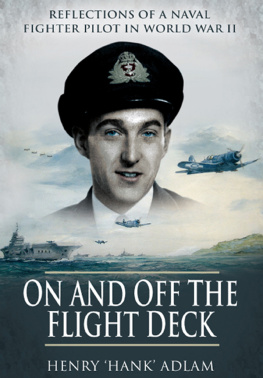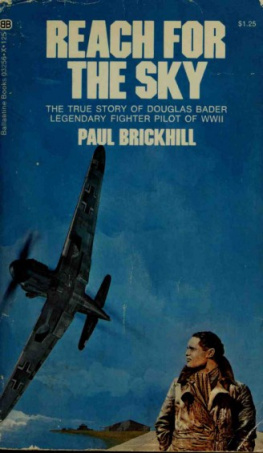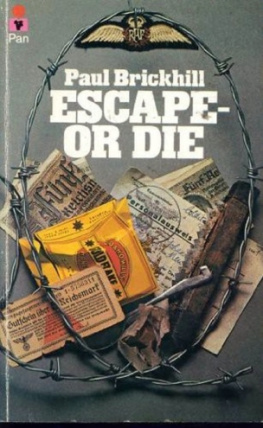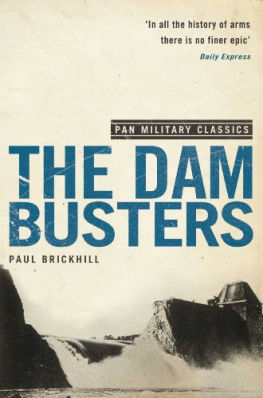Brickhill - The great escape
Here you can read online Brickhill - The great escape full text of the book (entire story) in english for free. Download pdf and epub, get meaning, cover and reviews about this ebook. City: Oxford, year: 2010, publisher: Isis, genre: Home and family. Description of the work, (preface) as well as reviews are available. Best literature library LitArk.com created for fans of good reading and offers a wide selection of genres:
Romance novel
Science fiction
Adventure
Detective
Science
History
Home and family
Prose
Art
Politics
Computer
Non-fiction
Religion
Business
Children
Humor
Choose a favorite category and find really read worthwhile books. Enjoy immersion in the world of imagination, feel the emotions of the characters or learn something new for yourself, make an fascinating discovery.
- Book:The great escape
- Author:
- Publisher:Isis
- Genre:
- Year:2010
- City:Oxford
- Rating:3 / 5
- Favourites:Add to favourites
- Your mark:
- 60
- 1
- 2
- 3
- 4
- 5
The great escape: summary, description and annotation
We offer to read an annotation, description, summary or preface (depends on what the author of the book "The great escape" wrote himself). If you haven't found the necessary information about the book — write in the comments, we will try to find it.
The great escape — read online for free the complete book (whole text) full work
Below is the text of the book, divided by pages. System saving the place of the last page read, allows you to conveniently read the book "The great escape" online for free, without having to search again every time where you left off. Put a bookmark, and you can go to the page where you finished reading at any time.
Font size:
Interval:
Bookmark:
THE GREAT ESCAPE
Paul Brickhill
Several days ago I was given the manuscript of this book to read. I took it home and Eleanor and I, becoming engrossed in it, sat up all one night poring over what Paul Brickhill has written. Whew! she said when we had finished. Did all this really happen?
The manuscript was on the floor between us and I was staring out the window.
Yeah, I murmured. It really happened.
And that is the only introduction this book actually needs: Yes, it really happened. But because every man mentioned in this book was a friend of mine, because I have shared pitifully small rations with them, fought lice with them, baited the Germans with them and because many of them are now dead, I am grateful for this chance to point out that they did not die for a senseless reason.
This book is many, many things. It is the story of a project, a project conceived in the minds of, and carried through to success by, a group of ragged, starving scarecrows who, despite all privations, never lost sight of their sworn duty.
There is something demoralizing about being taken a prisoner of war. At first it stuns the mind and one is overwhelmed with a feeling of helplessness, and hope is only a dim, dim shadow. The new prisoner is sorely tempted to sit back quietly, co-operate with his captors and thus make life comparatively easy for himself. In fact that is the philosophy the Germans were constantly trying to drive into our minds. They offered us many alluring inducements in the form of extra privileges and rations to behave, to co-operate and to give up our vexing escape attempts.
But it is the duty of an officer in time of war, should he have the bad fortune to be taken prisoner, to do all in his power to escape. If escape is impossible it then becomes his duty to do everything within his means to force the enemy to employ an inordinate number of soldiers to guard him, to do all he can to harass the enemy and to convince his captors that they have caught a very large, very active and troublesome bear by a slippery tail. If the carrying out of this duty can be heavily spiced with a rollicking, ribald sense of humor and a sharp sense of the ludicrous such as is possessed by most Americans and British then this duty becomes more a game than a duty, a game to be entered into with fiendish glee. And as such it was considered by all the thousand-odd officers whom the Germans had corralled in the North Compound of Stalag Luft III during the war.
By the time the Americans began arriving, in the North Compound the escape, sabotage and harassing organizations were already well organized. There was considerable doubt in the minds of the more prison-wise British as to just how helpful the Americans would prove to be in this game of cloak and dagger with the Gestapo. The average Briton of course prides himself on being part of perfidious Albion and the British contingent was doubtful that the Americans, with their vaunted background of Dan Beard-Boy Scout-Fair Play training, could turn their minds from this pabulum and take an effective part in activities that required a completely Machiavellian attitude.
However, the British obviously overlooked the fact that an American only has to be sold on the idea that his cause is just and he is capable of anything. (The American Indian and the Panama Canal are two points in proof.) And it was not long before all the subversive activities of the camp were taking on a rowdy, fresh air of hubba-hubba that was leaving the Germans completely bewildered. As soon as the Americans got over the initial shock of being prisoners they started robbing the Germans blind of anything they could possibly use, lying through their teeth to their captors with all the persuasiveness of a European diplomat and, if need be, were quite capable of slipping up behind a guard with a ready loop of piano wireto the constant terror of the reprisal-fearful British. They began showing even the wily British some new and improvised tricks in waging an undercover, unscrupulous war.
But this book is a whole lot more than a hilarious story about a group of food- and sex-starved men playing grim practical jokes on a race of square-headed people who are devoid of any sense of the ridiculous. It is the story of achievement against impossible odds. And it proves something that I believed then and know now^there is nothing that can stop a group of men, regardless of race, creed, color or nationality, from achieving a goal once they agree as to what that goal is. The aftermath may be sheer, stark tragedythat lies with the godsbut the point is, men, working together, can accomplish anything. This bookand the episode about which this book is writtenproves it.
In its essence this is the story of a group of menand of one man, Roger Bushell, who was the colorful leader. And yet through it all runs the theme that even in death man can triumph over any obstacle. To my mind this is also the story of a Tower of Babel. The fact that this tower was in reverse and happened to be a tunnel is a minor point. What was important thenand is more so nowis that this Tower of Babel was successfully erected. It proves something important. In one magnificent gesture the seventy-six ragged, verminous men of all nationalities who climbed out of that stinking hole in the ground in Silesia on that windy March night in 1944 thumbed their collective nose at the entire Third Reich and all it stood for. They triumphed, through the only means left to them, over an idea that was rotten from the core out. And they proved for all posterity that men, working together, can dig a damned deep hole in the groundor build a shining Tower of Babel.
George Harsh
New York
TO THE FIFTY
Prison camp life would not have been so bad if:
(a) It werent such an indefinite sentence. At times you couldnt say you wouldnt still be there (or worse) in ten years.
(b) The Germans didnt keep dropping hints that if they lost, Hitler was going to shoot you anyway, just to even the score.
(c) You could get enough food to fill your belly again. Just once.
So we spent a lot of time trying to escape. It is a melancholy fact that escape is much harder in real life than in the movies, where only the heavy and second lead are killed. This time, after huge success, death came to some heroes. Later on, it caught up with some villains.
You learn to escape the hard way. It took us three years to become proficientfrom the first primitive tunnels to the deep, long ones with underground railways, workshops and air pumps, forgery and compass factories, and so on. Above all we learned how to destroy sand and to hide everything in our little compound from the Germans constantly searching us.
The British had a start on the Americans because they were there first. Then the Yanks joined us and took to the escape business like ducks to water.
One got used to living in a microscopic world where life lay in working patiently for that brooding genius, Big X. I suppose it is romantic now. It wasnt then. Life was too real, grim and earnest.
They were all realRubberneck, the humorless and coldly efficient German; Bix X, the South African; Walenn, that charming Englishman; Ker-Ramsay, the dour Scot; Harsh, the rambunctious Yank; Sage, another Yank, also rambunctious; Floody, the Canadian who looked consumptive (and still does); Cornish, the baby-faced Australian; Poh, the dark Maori; Minskewitz, the Pole with the Uncle Sam whiskers; Staubo, the handsome Norwegian; and all the others, too numerous to mention, even in the narrative that follows. No one ever noticed a nationality tag.
The Germans tried to play off the British against the Americans and vice versa, and in the end they took the Americans away and segregated them in another compound. We got along too damn well together
Next pageFont size:
Interval:
Bookmark:
Similar books «The great escape»
Look at similar books to The great escape. We have selected literature similar in name and meaning in the hope of providing readers with more options to find new, interesting, not yet read works.
Discussion, reviews of the book The great escape and just readers' own opinions. Leave your comments, write what you think about the work, its meaning or the main characters. Specify what exactly you liked and what you didn't like, and why you think so.

